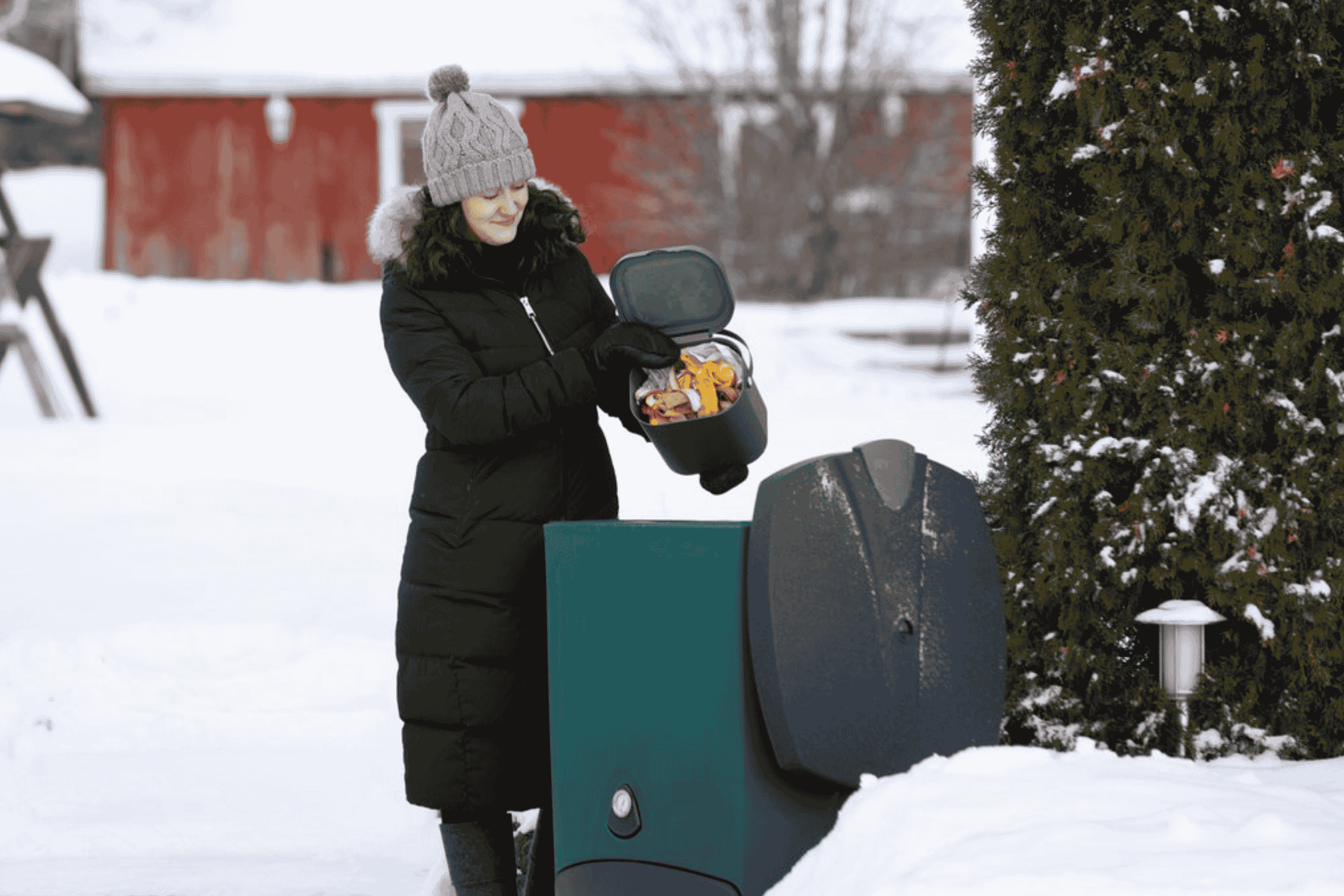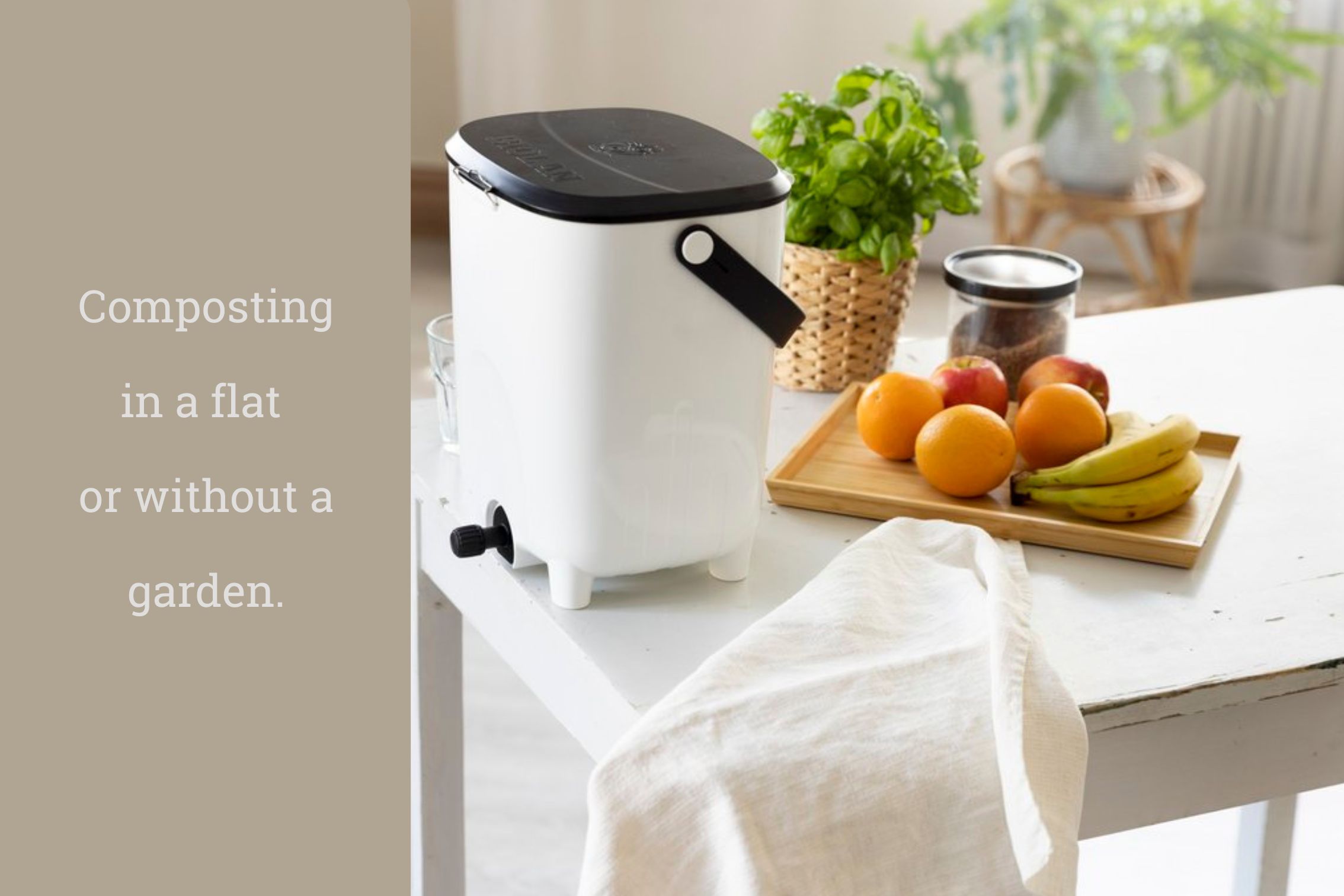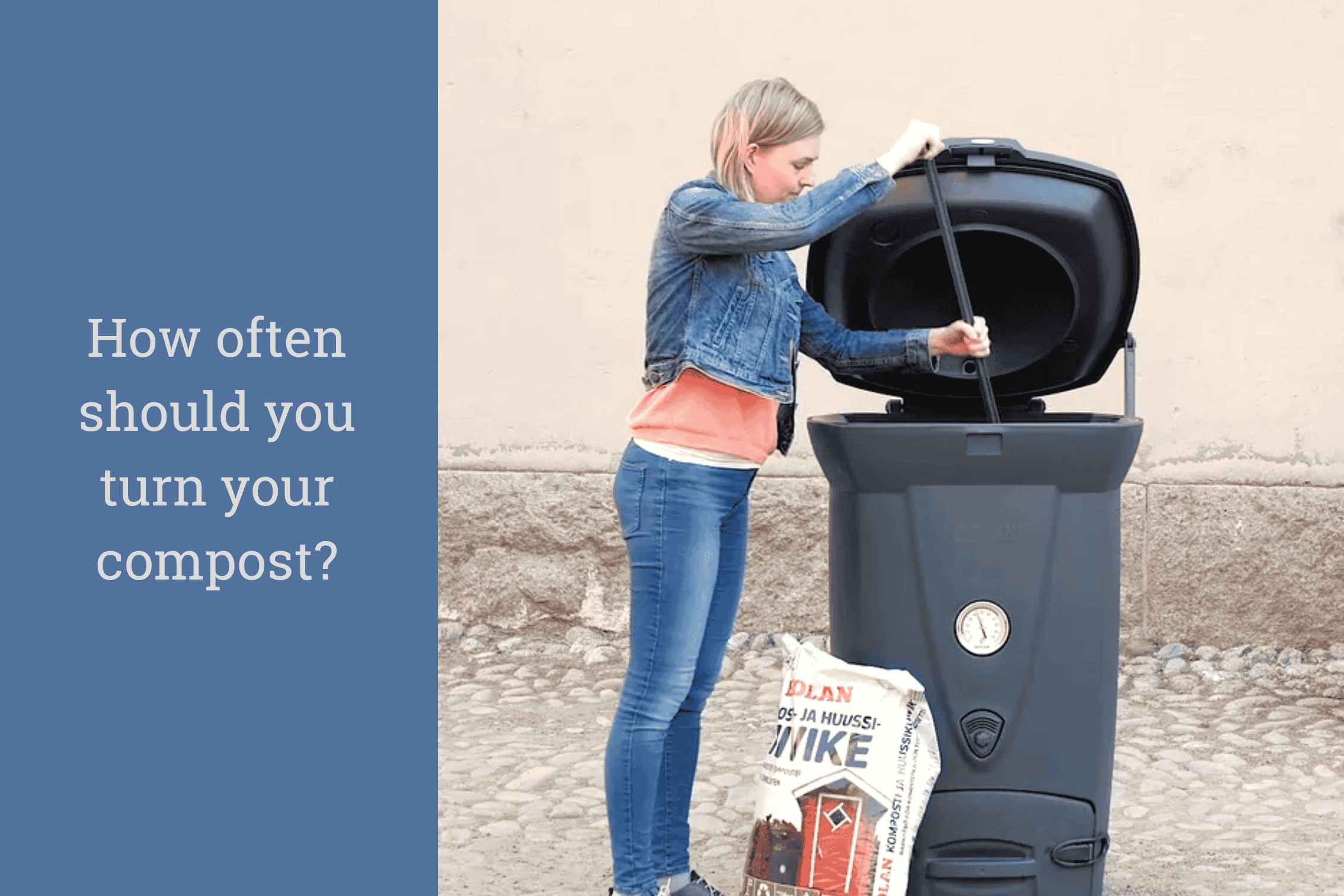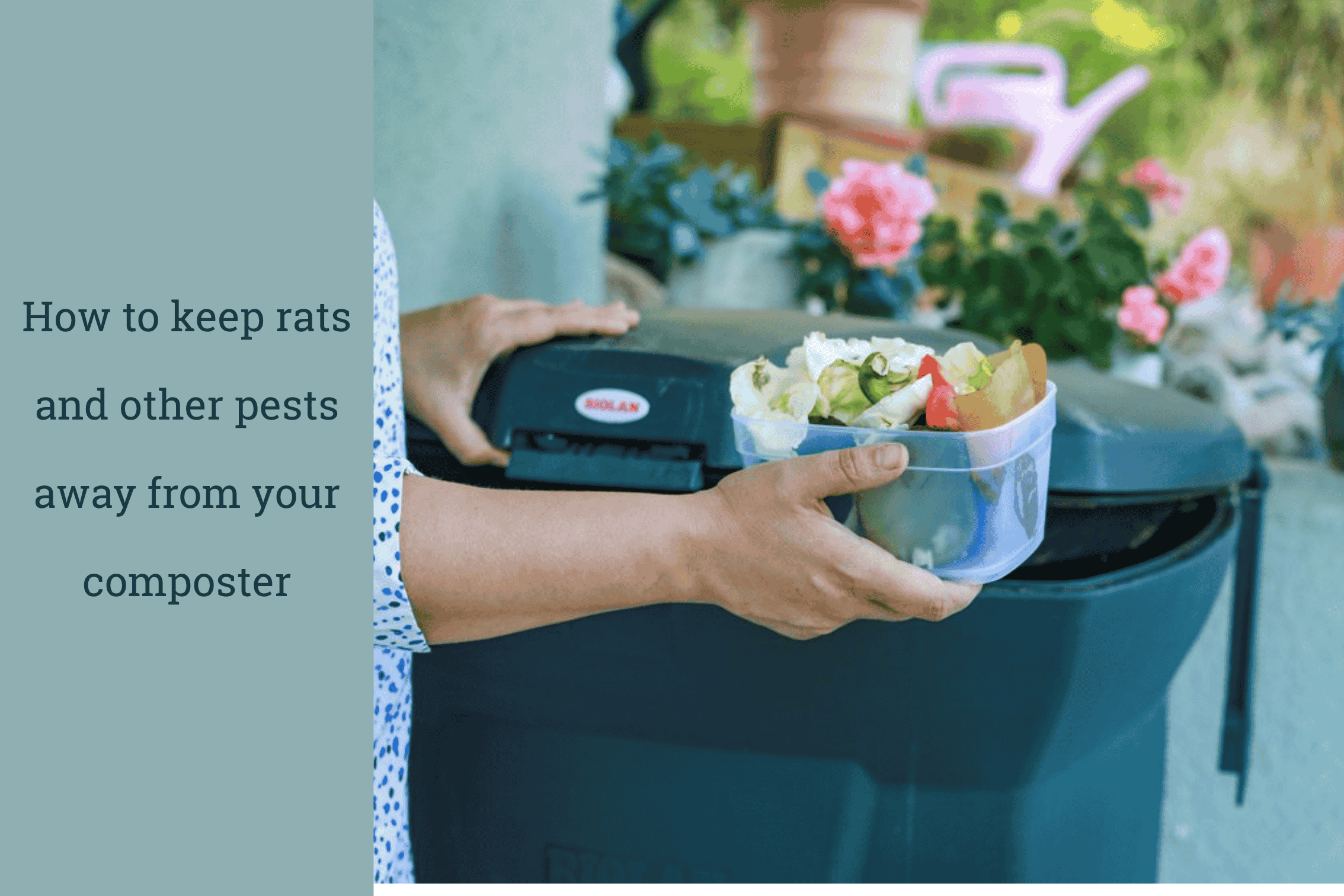.gif)
Do Composting Bins Smell?
Don't let bad smells put you off composting! A healthy compost bin should smell earthy. This post explains why compost gets stinky and how to fix it.
Busting the myth and sharing simple tips for keeping your compost fresh
One of the biggest misconceptions about composting - especially for those new to it - is that compost bins smell badly. And we get it. The idea of rotting food and garden waste might sound like a recipe for a smelly mess.
But here’s the good news: a well-managed compost bin shouldn’t smell bad at all. In fact, it should have a pleasant, earthy aroma - like the forest floor after a good downpour.
So, if your compost bin is kicking up a stink, it’s trying to tell you something. And in this blog, we’ll help you decode it.
What Should Compost Smell Like?
Finished compost (or compost that’s on the right track) has a rich, earthy smell - think woodland soil or a freshly dug flowerbed. This scent means the microbial activity is working just as it should.
If your compost smells:
- Sour or vinegar-like - it's probably too wet or too acidic
- Rotten, like spoiled food - you’ve likely added too many "greens" or there’s not enough air
- Ammonia-like - there’s too much nitrogen-rich material (like grass clippings or food waste)
None of these are ideal, but all are fixable!
Why Compost Might Start to Smell
There are a few common reasons your compost might start giving off an unpleasant whiff:
❌ Too Much Moisture
Excessive moisture (often from food waste or lots of fresh grass) can cause anaerobic (airless) conditions — and that’s when things start to smell bad.
❌ Lack of Browns
Without enough carbon-rich “brown” materials (like shredded paper, dry leaves, or cardboard), the nitrogen in green waste builds up and causes odours.
❌ Poor Ventilation
Compost needs oxygen! A bin without enough airflow won’t allow microbes to do their job properly - resulting in smelly sludge instead of rich compost. That's where the 200eco comostercomes into play having it's own built in air-ventilation system.
❌ Not Enough Turning
Turning your compost helps introduce air, distribute moisture evenly, and stop anaerobic patches from forming. No turning= no breathability.
How to Prevent (and Fix) Smelly Compost
✅ Balance Your Greens and Browns
A healthy compost pile needs between a 25:75 or 50:50 green / brown mix. Green waste is nitrogen-rich and carbon-rich materials are brown. If your compost is too wet or smelly, the chances are it needs more brown dry waste such as dry leaves, small twigs or straw.
Greens:
- Vegetable scraps
- Coffee grounds
- Fresh grass clippings
- Egg shells (crushed)
Browns:
- Shredded cardboard
- Dry leaves
- Straw or hay
- Pine needles
- Dried grass
Top tip: every time you add food waste, add an equal amount of dry brown material. You can even try our bulking material which is great for balancing the carbon / nitrogen balance in your compost: it absorbs odours, reduces moisture and adds air to your compost pile.
-min.jpg)
✅ Turn It Regularly
Turning your compost. This introduces air into the mix, which keeps the microbes happy and working fast - whilst discouraging bad smells.
If you’re using a composter like the Biolan eco Quick Composter, the internal design helps maintain airflow and simplifies turning. The ventilation channels also help reduce excess moisture. We would still recommend turning the top 30cm of materials when new waste is added to encourage air flow.
You can also add in an accelerator which speeds up decomposition while improving compost quality.
✅ Keep It Covered
A closed-lid composter helps regulate moisture and temperature - especially important in the UK and Ireland where rain might quickly turn compost into soggy mush.
Our composters are fully enclosed, double lined and insulated, helping maintain a clean, odour-free environment whilst still allowing necessary airflow.
✅ Watch What You Add
If possible avoid putting in:
- Cooked food
- Meat, bones, or fish
- Dairy products
- Fats and oils
These materials can be added in small quantities, but will attract pests and smell bad as they break down. Stick to raw veg and garden waste to keep things fresh.
Composting in Small Spaces or Urban Gardens
Worried about smells in a small garden or close quarters with neighbours?
The solution is simple: use a sealed, ventilated system like the Biolan 220eco or a wormery. These systems are designed to manage odour naturally and work well in UK back gardens, or even shared spaces.
The BottomLine: No, compost doesn’t have to smell!
With a little know-how and the right equipment, composting can be a clean, odour-free process - no matter the size of your garden.
If your bin is a bit whiffy, it’s just a sign that something’s slightly off-balance. A quick tweak, a few browns, and a stir will usually sort it.
Want Smell-Free Composting Year-Round?
At Plastic Solutions, we stock composting systems that work with the British climate, not against it.
Explore our compost bins, dry toilets, and accessories - including the market-leading Biolan range - right here:
👉 Visit our composting webshop
OTHER POSTS IN THIS CATEGORY:
.png)
Duckling Barn Glamping needed off-grid, eco-friendly sanitation. A 200L composting toilet offered a waterless, odourless, sustainable solution.
.png)
The Biolan 220eco composter handles all food waste, including cooked scraps, all winter. Use bulking material for perfect, odour-free compost

Yes, you can compost in winter! Learn how to keep your bin active during the UK's cold months with tips, tools, and winter-ready composters.

Tired of smelly bins? Learn how to compost in your flat usingan indoor Bokashi bins, and turn your scraps into garden gold - even without a garden.

Find out how often to turn your compost, why it matters, and simple tips to boost breakdown and reduce smells in your garden bin.

Keep pests out of your compost bin with smart tips on what to add, how to balance materials, and ways to seal and protect your setup year-round.



